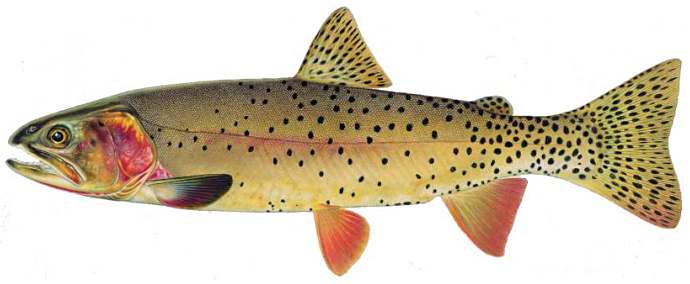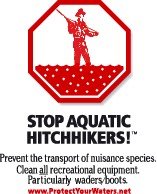WAS HERACLITUS A FISHERMAN ?
just what river did he fish ?
The Yellowstone Syndrome
ποταμοῖσι τοῖσιν αὐτοῖσιν ἐμϐαίνουσιν,
ἕτερα καὶ ἕτερα ὕδατα ἐπιρρεῖ
-------
.. Many fly fishing visitors come to Yellowstone National Park armed with the information from famous guide books and fishing tombs that have been proclaimed "classics." These books contain information about "what was" - presented as "what is." Such a sad and disillusioned state of affairs.just what river did he fish ?
The Yellowstone Syndrome
ποταμοῖσι τοῖσιν αὐτοῖσιν ἐμϐαίνουσιν,
ἕτερα καὶ ἕτερα ὕδατα ἐπιρρεῖ
-------
.. We, too, read these classics from time to time - but, from a different perspective than do most fisher folk. We read them as historical documents. We're interested in what was. Each time we step into a river we know what is.
.. Please believe us when we tell you that yesterday's river is history. Last week's river is just a memory. The river of 10, 20, 30, or more years ago is long gone - and the observations, (often told as truth with a capital "T",) about it are mere musings of memories sanctioned by the sages as useful.
.. If the advice given in these guide books was as valid and immutable as pretense would have it; then it could be projected backward in time as well as forward. Such, obviously, is not the case. Much of the advice about tackle, technique, and fish cannot be projected back in time. For many of the rivers in the park there were no fish before we began planting invasive species.
.. Most readers of fishing lore are beguiled by style and accept the accompanying substance as gospel. This is the Yellowstone Syndrome.
.. Verbal presentation is often slick. Personal and professional presentation follows the same mold. If it comes across as congenial and convincing it must be true.
.. There is a gargantuan dose of truth with a capital "T" in fly fishing. Probably because the truth-tellers are affable, congenial, smiling salesmen.
.. We all want the truth. We want it as we want life itself - handed to us on a silver platter. Then we can use it.
.. We don't even have to step in a river to know it's truth. We go armed with the correct rod, reel, leader, tippet, fly, and presentation. We look for the exact rock mentioned on page 27. We enter the river where the big tree overhangs the shallow riffle. We crouch, we scan, we creep, we cast - exactly as we were told in the book. We're then disappointed when the "gleaming, darting, shadow," does not rise to "gently suck the fly from the surface," as we were told it would.
.. Of course it must be our fault. The style and presentation of the expert was so convincing that the substance of what was told to us must be true. Even if it was 30 years ago, (or 30 minutes ago.) Forget about the earthquakes that have thrown boulders the size of Volkswagens into the river. Forget about the high water scours and the low water silts. Forget about the ever changing weed beds, bottom debris, temperature regimes, and newly cut side channels. That very same fish should have been there.
.. Our society thrives on presented expertise. It thrives on appearance. It demands that we believe before we do. So, then, we do. This is the common malady of the Yellowstone Syndrome.
.. We become disappointed because of belief. We're told it's wild - but it's not. We're told it's natural - but it's not. We're told how to catch that fish - but we don't. We're told the truth - but . . . .
.. Ancillary consequences accompany the Yellowstone Syndrome. And they are not limited to Yellowstone. Cautious or exuberant exploration will deliver other truths. Secrets are kept to oneself. Lies are told to protect those secrets.
.. Fraternal cliques form and share both truth and lies. Rumors grow. Sage advice and secrets become proprietary and salable. Whole stretches of rivers are abandoned because of secret truth. Fisher folks don't tell for the strange reason that they think that secrets will protect the river. The most protected rivers and streams are those with the most friends - not the least. Don't tell that truth to a fly fisher.
.. Imagine that a published expert can only think of six places to catch fish in 4 miles of the Madison River in Yellowstone National Park. My my: What day was that? What year? What is the value of that information? Should we abandon that stretch of the river for all time? Can that stretch of river change? Do we dare to explore? Is there perhaps a different truth - lo, these many years later?
.. When we visit the neighborhood rivers we explore. We hunt. We experience. Deep in our own solipsism is the conviction that this kind of truth is ineffable and transient. It's ours alone. We are seeking our own substance. We are the expert at any given moment. We're not seeking someone else's fish or experience. We're having a good time discovering the present. We enjoy telling the tale - wherever the river. Not as truth or lie, but as an experience. We want our rivers to have as many friends as possible. They have so few right now!
.. We finally know that Heraclitus must have had the soul of a fisher when he said, "You could not step twice into the same river; for other waters are ever flowing on to you."
.. Bless his heart, he also said, "It is better to hide ignorance, but it is hard to do this when we relax over wine." Now there's a fisher if we ever heard one.
.. Heraclitus also gave specific advice to help overcome the Yellowstone Syndrome, "Abundance of knowledge does not teach men to be wise."
-------
..
..
..
..
.









.jpg)




